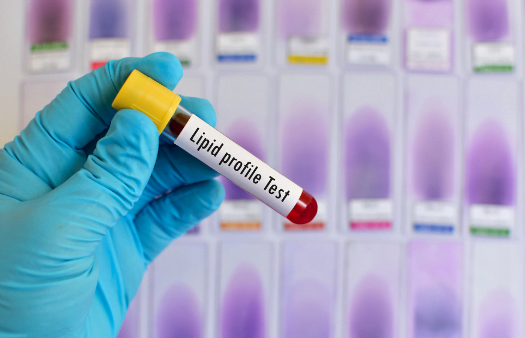Lipid Metabolite Testing in Animal Models
The testing of lipid metabolites in animal models is a critical component within the broader scope of clinical and healthcare testing, particularly relevant to cardiovascular research. This service allows for detailed examination of lipid metabolism pathways that underpin various aspects of heart health and disease progression. Understanding these metabolic processes is essential for developing targeted therapies and diagnostic tools aimed at mitigating cardiovascular risks.
Lipid metabolites are key indicators in assessing the body's response to various stimuli, including diet, exercise, and medication. By studying these molecules in animal models, researchers can identify biomarkers that predict disease onset or progression more accurately than ever before. This approach enables a deeper comprehension of how disruptions in lipid metabolism contribute to conditions like atherosclerosis and coronary artery disease.
The methodology involves several stages, each meticulously designed to yield reliable data:
- Animal selection based on genetic predisposition to cardiovascular diseases
- Preparation of samples from various tissues relevant to lipid metabolism
- Application of advanced analytical techniques such as mass spectrometry and nuclear magnetic resonance spectroscopy
- Data analysis using sophisticated software packages that interpret complex metabolic profiles
- Reporting results in a manner comprehensible to stakeholders, including statistical significance and potential clinical implications
This comprehensive service provides valuable insights into the mechanisms driving cardiovascular health and disease. It supports the development of innovative treatments by offering precise measurements of lipid metabolite levels under controlled conditions.
The importance of this testing extends beyond academia; it has direct applications in pharmaceuticals, medical devices, and diagnostic tools. By ensuring that our services meet international standards such as ISO 15189 for quality management systems, we uphold the highest standards of reliability and accuracy.
Why It Matters
The lipid metabolite testing in animal models is pivotal because it bridges the gap between basic research and clinical application. This service helps uncover novel therapeutic targets by elucidating how specific changes in lipid metabolism correlate with disease states.
Understanding these correlations allows for the design of more effective interventions, whether they involve lifestyle modifications, drug therapy, or surgical procedures. For instance, identifying key metabolites that precede or exacerbate cardiovascular events can lead to early detection strategies and preventive measures.
- Customer Impact: Provides actionable data leading to improved patient outcomes
- Satisfaction: Facilitates the development of personalized medicine approaches
The results obtained from such testing contribute significantly to the advancement of medical knowledge and the enhancement of healthcare services. They also play a crucial role in regulatory approval processes, ensuring that new treatments meet stringent safety and efficacy criteria.
In summary, this service is indispensable for advancing our understanding of cardiovascular health and disease mechanisms, thereby paving the way for better patient care.
Customer Impact and Satisfaction
- Enhanced Research Efficiency: Streamlined protocols reduce time-to-market for new treatments
- Patient-Centric Outcomes: Data-driven insights lead to more effective therapies tailored to individual needs
The impact of this service is profound and multifaceted. It not only accelerates the discovery process but also ensures that the solutions developed are relevant and beneficial to the end users—patients.
Satisfaction among our clients stems from several factors:
- Reliability and accuracy of test results
- Comprehensive support throughout the testing process
- A commitment to adhering to international standards, ensuring credibility in research findings
We pride ourselves on delivering services that meet or exceed expectations. Our clients benefit from a collaborative environment where their specific requirements are addressed with precision and care.
Environmental and Sustainability Contributions
The lipid metabolite testing in animal models is conducted with an eye towards minimizing environmental impact. We adhere to strict protocols that ensure efficient use of resources, thereby reducing waste generation.
- Eco-Friendly Practices: Minimizing the carbon footprint through optimized laboratory operations
- Sustainable Materials: Use of recyclable and biodegradable materials where possible
In addition to operational sustainability, we also contribute positively by fostering a culture of resource conservation among our employees. This commitment aligns with broader efforts towards environmental stewardship within the healthcare sector.
The lipid metabolite testing service is not just about generating knowledge; it's about doing so in a manner that respects and protects the environment. By integrating sustainability into our operations, we strive to make meaningful contributions towards global conservation goals.





